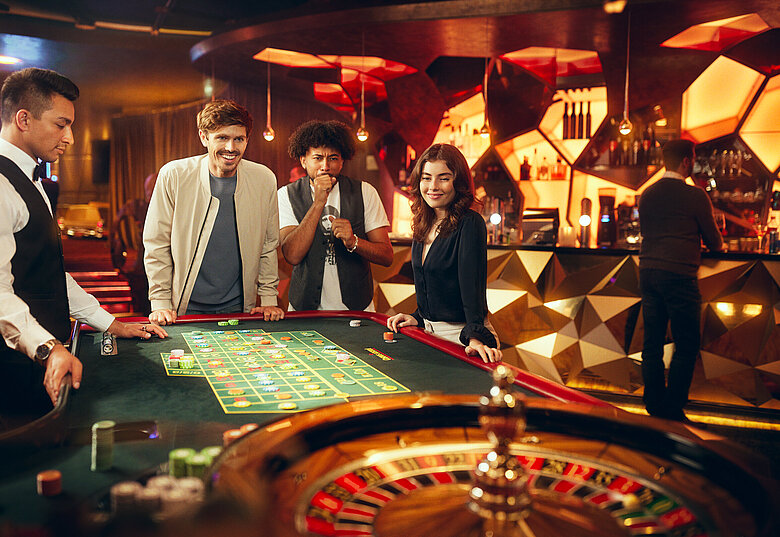
Betting has been an important part of human entertainment for thousands of years, developing through cultures and periods to become the vibrant casino games we know today. From the ancient Chinese and Romans, who engaged in multiple forms of betting and chance, to the sophisticated gaming floors of today’s casinos, the attraction of risk and reward has captivated individuals across the globe. The transition from simple dice games and primitive betting setups to the opulent settings of modern casinos reflects considerable strides in both social norms and technological.
As cultures evolved, so too did the complexity of gambling activities, with gambling activities emerging as a distinct category of leisure and thrills. These activities have transformed from casual gatherings centered around wooden tables to grand, lavish establishments designed to entice players. Today, we explore this fascinating journey, studying how historical practices laid the foundation for the varied and exciting casino games that bring joy to countless people worldwide.
spintax
Historical Betting Traditions
Betting has profound roots in human past, with proof of games of chance originating from ancient civilizations. Archaeologists have uncovered that as far back as 3000 BC, the people of China were using primitive forms of betting with dice made from bones. Similarly, ancient Mesopotamians engaged in gambling activities, often relying on the tossing of lots or dice to determine outcomes. These early forms of betting served not only as entertainment but also played important roles in social and cultural practices.
The Egyptians also took part in betting activities, with games that included betting on the results of various occurrences, including sports and religious festivals. Items such as dice and depictions of players from ancient tombs show that gambling was a common pastime. It provided both relaxation and a means of engaging in social connections, often linked to festive occasions or significant gatherings. This activity showed the universal appeal of chance and rivalry throughout the ages.
In ancient Rome, wagering became a commonplace practice among the citizens, as reflected by references in texts and the establishment of guidelines around certain games. Romans enjoyed a variety of gambling activities, from betting on horse races to playing games like modern-day board games. The legal system surrounding these activities began to take shape, establishing the foundations for gambling regulations that would develop in the centuries to come. The prevalence of gambling during this period set the stage for the development of casino games in the future.
The Progression of Casino Games
Gambling games have experienced significant transformations from their origins to the modern-day entertainment offerings. Gacam888 In early civilizations, gaming was often associated to ceremonial practices, with dice games found in Mesopotamia and wagering on the outcomes of events in ancient Rome. These initial forms of gambling laid the basis for the organized games we see today. The transition from informal gambling to regulated games happened as societies began creating rules and venues for wagering, demonstrating cultural values and practices.
The medieval period saw the development of card games, which gained fame among the nobility of Europe nobility. Games like first and the game baccarat became mainstays in social gatherings. The development of printing technology further enabled the spread of playing cards, making them more available to the common people. As gambling houses began to multiply, these card games developed into different forms that appealed to wider audiences, eventually leading to the establishment of casinos as specialized venues for gaming.
The 20th century marked a crucial point in the progression of casino games, with the rise of commercial casinos in Las Vegas and other gambling hotspots. This era introduced games like slot machines and modern versions of table games, complete with advanced graphics and complex betting structures. The arrival of online casinos in the late 1990s further transformed the gaming industry, allowing players to access a vast array of casino games from the convenience of their homes. Today, gambling games continue to progress, blending time-honored elements with advanced technology to create engaging experiences for players around the globe.
Modern Gambling Regulations
In the past few years, the area of gaming laws has developed significantly, notably as technology and online gaming have become more prevalent. Authorities around the globe have implemented various laws and standards to make certain that gambling activities are performed fairly, with responsibility, and transparently. These laws often include elements such as licensing, marketing, player safeguards, and sensible gaming measures. Authorities aim to minimize problems such as gambling addiction and cheating while fostering a just gambling environment.
The emergence of online gambling sites has created a need for a new approach to oversight. Many legal areas have created dedicated internet-based gaming structures that serve internet-based gambling, enabling operators to provide their offerings legally. These frameworks often demand operators to secure licenses, follow strict safety standards, and offer assistance options to help players. By vigilantly supervising internet activities, authorities can better protect consumers from risks and make sure that gambling is conducted in a secure manner.
Furthermore, modern gaming regulations are progressively concentrating on sensible gaming strategies. Many gaming establishments and internet-based platforms now adopt features such as self-exclusion, financial limits, and breaks to help players manage their gambling habits. Awareness campaigns aimed at educating about the dangers of gaming are also frequent. As the sector continues to expand, the emphasis on sensible gaming continues to be a cornerstone of governing efforts, reflecting a dedication to promoting a secure and pleasant gaming experience for all players.
